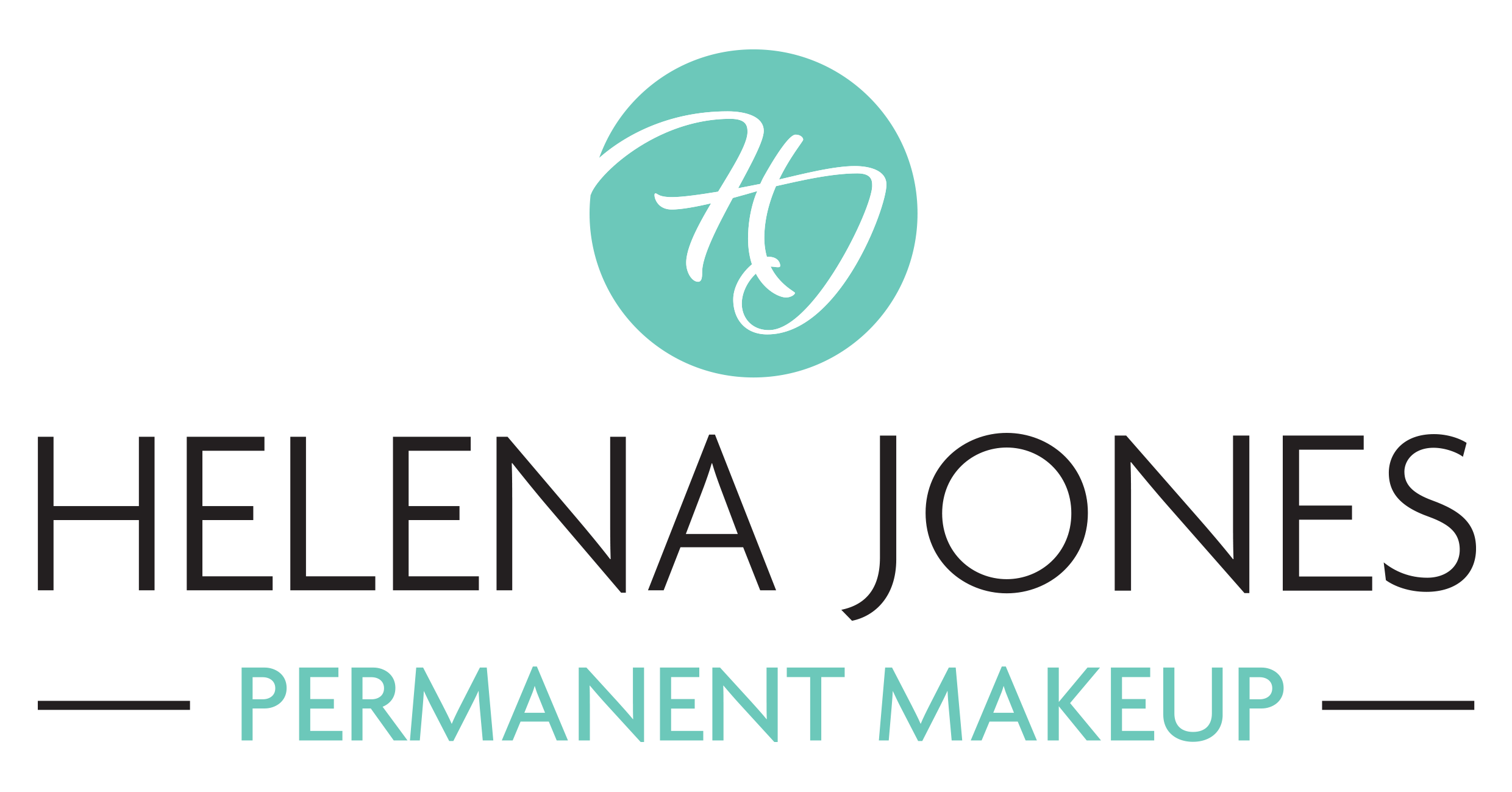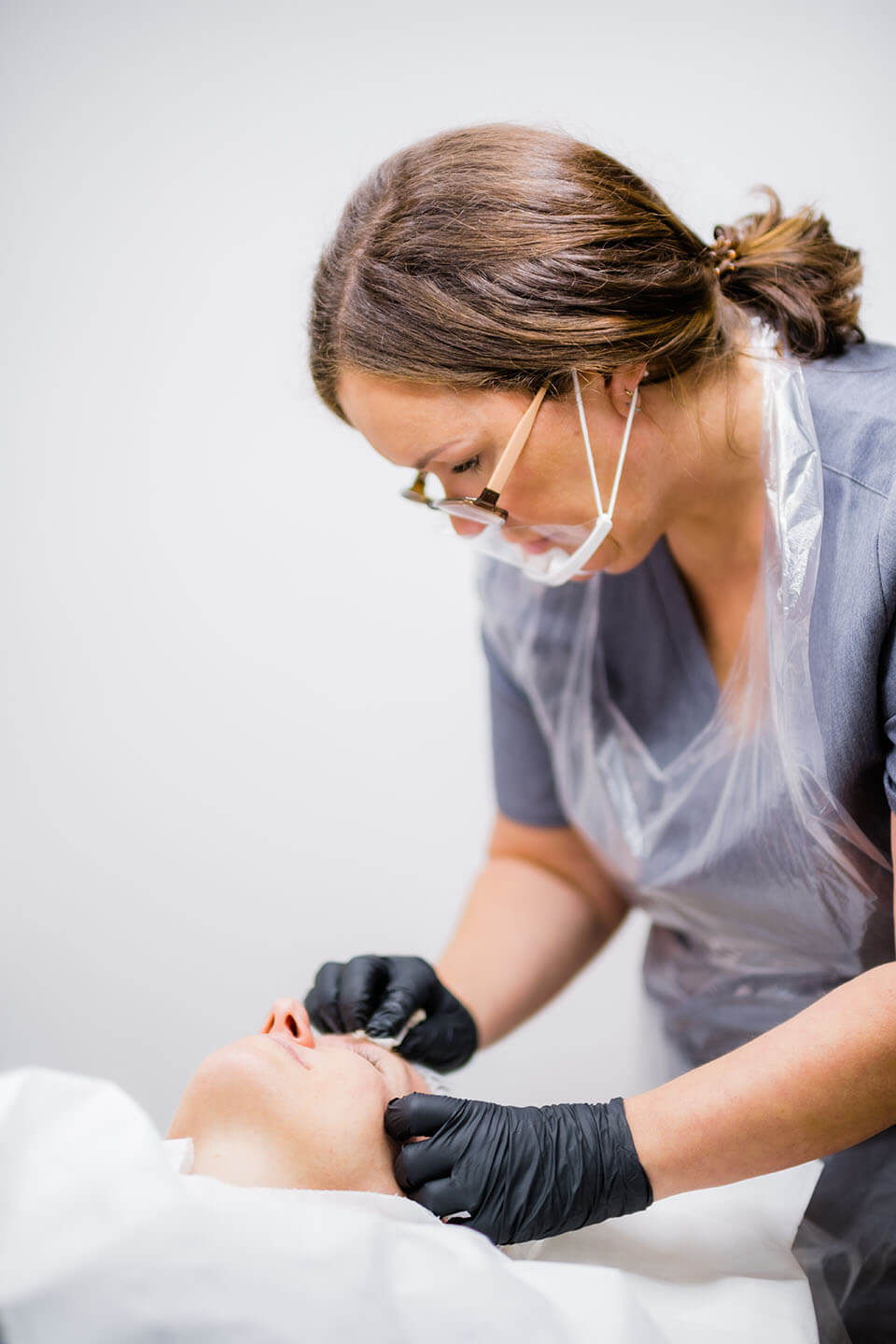How to choose the right permanent makeup technician?
Are you considering having a permanent makeup or microblade treatment carried out? We know this can be a daunting experience and you may feel a little lost as to where to start.
To ensure you are in safe hands and the procedure is as safe as possible, it’s important that you do your research and find the right technician for you. Please don’t go for the cheapest you can find, cheapest isn’t always best, remember you are having your face tattooed and there are several things you should consider.
Here are some helpful tips and guidelines to get you started.
Consultation process
Speak to your chosen technician, ask to meet them, go along for a consultation to see if you gel. What are your first impressions?
Does the technician act in a professional confident manner? Is he/she dressed appropriately, wearing a uniform or work wear and not in casual clothing? Is their hair tied back and secure from their face? Are they clean and tidy?
What is the treatment room like? [See what to look out for in the Insured and Licensed section below]. Did you receive an explanation of what the whole procedure entails? Were you asked if you had any questions or concerns?
A patch test should be carried out at this stage to ensure there are no adverse reactions to the pigment that will be used. It can either be placed on a plaster on the skin, or a scratch test can be performed (a small scratch is made in the skin with a lancet, and a small drop of pigment is rubbed into the wound).
How much do they charge? If the price is low or high compared to other technicians, ask why?
The technician should ask you lots of questions to determine why you want the procedure? Ultimately, it’s a tattoo on your face. Are you having the procedure done to give back lost confidence because of ageing or hair loss? Is a tattoo right for you, or would another brow treatment be more appropriate?
The technician may draw the area on for you, so that you can get a good idea of how it would like tattooed. At the end of the consultation, you should be armed with all the knowledge you need to make an informed decision about whether to move forwards or not.
Medical screening
There are some conditions that are contraindicated (not suited) to permanent makeup. Some of these are: you must be 18 years or over, not pregnant or breastfeeding and not taking blood thinning medications. There are also some conditions where a doctor’s consent note is required. Your technician should ask in depth questions about your medical health and will require a list of any ongoing medical treatments and medications.
Is the technician fully qualified?
Ask to see a certificate of accreditation. Ask about the course taken, how long was it? A quick day course is simply not long enough to learn everything required in permanent makeup, and you may well find that such technicians are offering the cheapest prices. It should be a reputable training academy such as Karen Betts Professional. How long have they been carrying out permanent makeup treatments? Do they have a portfolio of work that you can look at? When you meet your technician, look for the passion they have for creating permanent makeup treatments. I love my job, living and breathing permanent makeup. As soon as you meet me, you’ll understand what I mean. Look for the spark. It’s not just a job.
Continued personal development
What has the technician done since qualifying? How many hours of further training have they completed? As permanent makeup technicians, we can never stop learning and striving for perfection. Dedicating hundreds of hours to practice and further enhance our skills.
Insured and Licensed
Is the technician insured and working from licensed premises? Ask to see the insurance certificate and license for tattooing to be carried out which is issued from the local council. Each person who tattoos from that premises, should have their own name on the license.
The treatment room should be cleaned and disinfected between each client, using high grade disinfectant chemical solutions to avoid all risks of cross contamination.
There should be a sink with hot and cold running water. Sharps container and hazardous waste disposal should also be in the room.
Sterile and single-use products
It’s a cliché, but you get what you pay for. Most technicians, use only the best quality products and tools. Everything that touches you during the actual procedure (once the skin is broken) should be single-use only and disposed appropriately of after the appointment.
All tools that are not single use such as tattoo handpieces and power packs, should be fully barriered with non-soluble materials such as tattoo sleeve cords and machines covers.
All needles and blades should be brand new, single use only, factory sterilised, individually wrapped, and have expiry dates, and LOT numbers, alongside the type of needle it is listed on the packaging. All blades, needles or razors must be disposed of in a special sharp’s container.
Ask what products, tools and pigments are used? You can take the information away with you and do your own research.
During your treatment, your artist must be wearing/using the proper personal protection equipment, including disposable gloves, apron and face mask that is changed before and after your procedure.
I hope you find these tips and guideline useful.
Helena x

